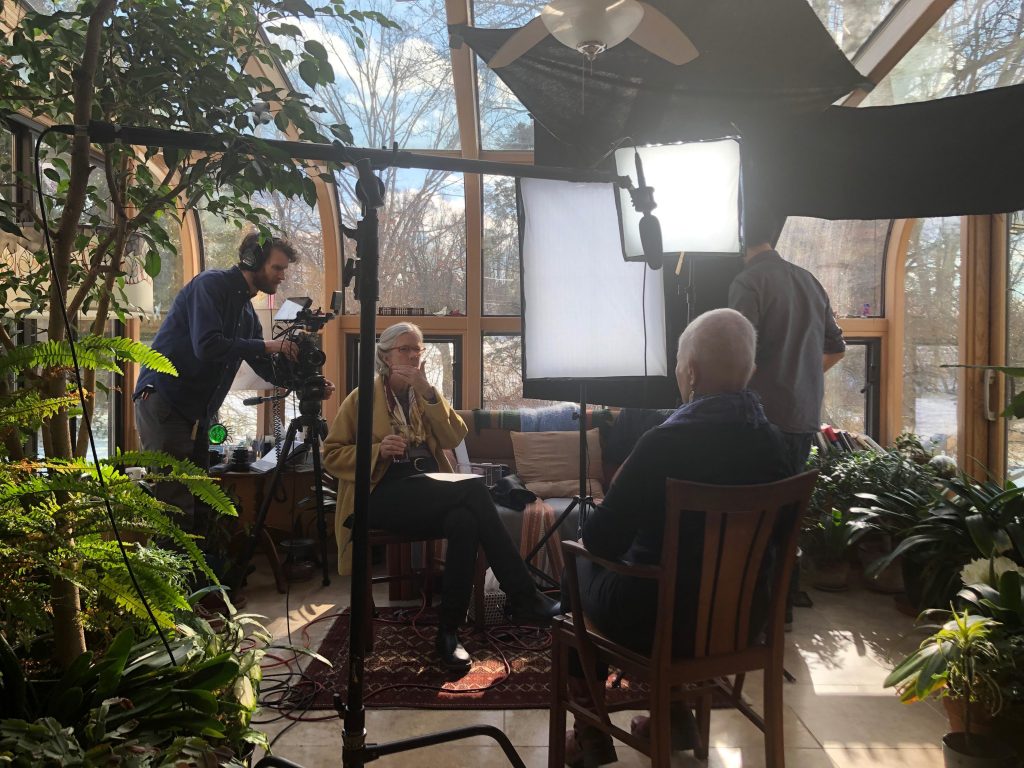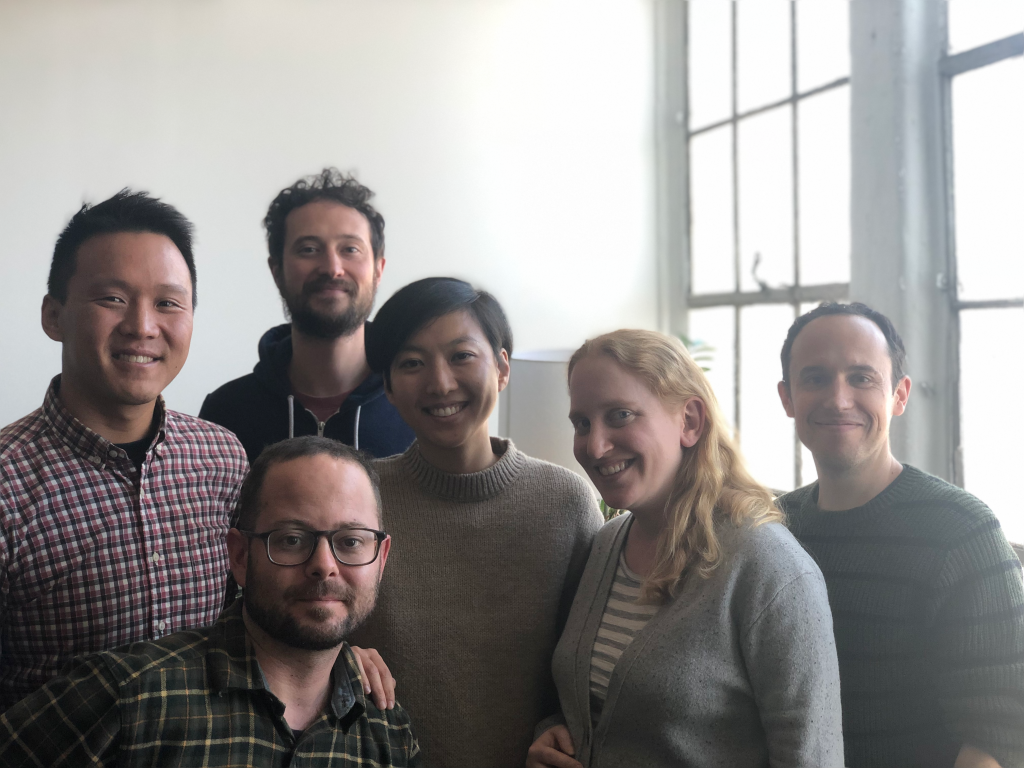eerkat Media is a filmmaking cooperative that shares resources and skills to incubate individual and shared creative work. Their films have been broadcast on HBO and PBS, as well as screened at film festivals like Sundance and Tribeca. They’re also a production company that does commission work in addition to their own narrative projects. Their feature documentary Dark Money recently made the Oscars shortlist.
As a longtime admirer of their work, I talked to Meerkat about their cooperative structure and the importance of independent filmmaking.
Introduce our readers to Meerkat Media. Who are you, what do you do, and when did you get started?
Meerkat Media is a cooperative film production company and arts collective based in Brooklyn, New York. Founded in 2005, our independent films have been broadcast on HBO, PBS, CNN, and screened at film festivals worldwide, including Sundance, Tribeca, Full Frame, Hot Docs, and Rotterdam. The collective has collaboratively directed two feature documentaries, Stages and Brasslands, and recent co-productions have included Dark Money (shortlisted for Oscar for 2019 Best Documentary), Narco Cultura (Sundance 2013), Island Soldier (PBS 2019), and Untouchable (Tribeca 2016). We also produce short commissioned films for news organizations, unions, museums, and nonprofits around the world, including National Geographic, 350.org, Ford Foundation, National Nurses United, TIME Magazine, The New Yorker, and The New York Times.
 Meerkat is a worker cooperative, just like us. But the company’s origins were much more informal. When and how did you make that shift, and what was the motivation?
Meerkat is a worker cooperative, just like us. But the company’s origins were much more informal. When and how did you make that shift, and what was the motivation?
We began as a collective of like-minded artists seeking to collaborate on films and art in New York City. We wanted to create a community that could break down the traditional power structures in the film industry. As such, we set out to collectively direct films, and build up our own skills through internal skill sharing and workshops. In the early years, we made short independent films through communal labor and shared authorship. Eventually, several of us combined our paid freelance careers to begin making commissioned films for clients as a full-service film production company. A percentage of the profits from that client work has then gone towards our collective infrastructure: buying and maintaining film gear, maintaining our office space, funding the residency program, and giving internal grants to our personal independent film projects.
In addition to being an eight-person worker-owned cooperative, we are also a collective of sixteen artists-in-residence whose personal and collective projects are supported through a collectively-owned production office in Sunset Park, collective film equipment, and regular meetings to incubate and grow our artistic practices.
What’s the division of labor like? Do you have pre-production meetings to decide who’s going to work on which project, or does that get sorted out differently?
The eight member-owners of Meerkat Media Coop have three standing meetings a week: Monday check-ins to update everyone on all of our open projects, Friday working groups where we split into smaller task-based groups that handle the admin work of running the company, and a floating meeting during the week when we tackle an open-ended “big picture” topic over lunch.
We pride ourselves in being well-rounded filmmakers with varied skill sets, and our division of labor works because each of us can fill the three big roles in filmmaking: producing, shooting, and editing. Depending on the project, there will be one or more client-facing producers, who are then responsible for filling a crew to shoot and edit the film. We trade off roles depending on the project, while allowing room for certain producers to maintain particular long-term client relationships. Although we pay out a small amount in patronage from our company profits at the end of the year, we are not salaried; we essentially hire ourselves as freelancers on a project-by-project basis. This allows everyone the freedom to adjust their workload to their personal needs. We also have a larger freelancer pool of shooters, editors, animators, etc. that we hire as necessary, but we generally aim to provide most of our paid labor in-house.
“We wanted to create a community that could break down the traditional power structures in the film industry. “
You’ve worked for some big nonprofits like the Tenement Museum and the Ford Foundation in addition to your own projects like Dark Money. How do you approach these different kinds of projects?
Our underlying approach to making short commissioned projects is the same as working on larger feature-length films—with a primary focus on good storytelling. Our pitch to potential clients is always to highlight the fact that we are documentary storytellers first, who will work with them to find the most compelling human angle on their organization and the work they do.
 In an industry that’s dominated by big-budget blockbusters, how important is independent filmmaking to our collective culture?
In an industry that’s dominated by big-budget blockbusters, how important is independent filmmaking to our collective culture?
There’s actually so much amazing and innovative work being created in the documentary film world right now. Because of the democratization of filmmaking made possible by the dropping cost of production (affordable cameras, computers, etc), there has been a huge increase in the number of thoughtful films being made about the world and the human condition, with high production value and subtle storytelling. Independent films are where people are really experimenting with form as well as peering into the nooks and crannies of our societies to tell stories that, a few decades ago, would never have seen the light of day. Our drive as filmmakers is to expose our audiences to stories they would otherwise never have access to. It’s important, gradual work—to bridge the divides in our society through mere exposure.
What’s next for Meerkat Media? How can people follow your work and stay updated?
We’re producing a new series of short films for National Geographic that will be out in 2020, as well as shooting and editing a new documentary series for Netflix. Meanwhile, Dark Money, Brasslands, and Untouchable are all available for streaming on Amazon, and Island Soldier is available for streaming on America ReFramed at PBS. Folks can sign up for our mailing list at our website, follow us on Facebook, and Instagram at @meerkatmedia.
—
Featured image by Jay Arthur Sterrenberg | Behind the Scenes photo by Vi Nguyen | Group Photo by Pablo Benson-Silva
Community Spotlight is a blog series that seeks to connect people and build power. Each post will feature a person or organization doing great work in their community and fighting for a more just world. We interview writers, illustrators, podcasters, filmmakers, activists, and more. Subscribe today and let’s start building together.





